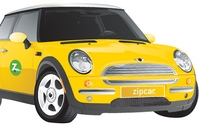 The Internet of Things will bring behavioral changes in
many areas, including the role of drivers in cars.
The Internet of Things will bring behavioral changes in
many areas, including the role of drivers in cars.
But the idea of driverless cars seems to be up against some serious consumer feelings that may keep them out of buying into the idea,
at least for now.
If the volume and intensity of comments to a new study of driverless cars I wrote about here earlier this week (Driverless cars: Majority Don’t Believe They Will Ever Own One; 60% Of
Millennials) is any indication, there is some serious sentiment about the issue.
Some complex issues were raised, such as in this comment from Mark:
“Who programs the ‘moral code’ of the systems? When a collision is unavoidable, which car is sacrificed? By age, value of the car, number of occupants? And
when it all come crashing down, and a bus is hit, as it did on Valentine's day in California, what are the insurance responsibilities? The car owner, manufacturer, GPS program, Google, Apple,
the hacker??? Driverless cars is the dumbest technology idea to ever come down the pike.”
Some of the comments dealt with the issue of the pleasure of driving a car. For example,
this comment from Jonathan states it quite well: “What about getting into why people drive and the enjoyment they get from it? This will (thankfully) keep driverless cars off the road for a long
time.”
And the other side was represented as well, most notably by Jennifer, who stated:
“Driving can be fun, but also a huge waste of time and
energy, as well as a seriously inefficient use of resources and income. I suspect in future we'll have auto parks where those who still want to get ‘behind the wheel,’ (what's that,
mommy?) will be able to thoroughly enjoy themselves without any barriers or road rules or traffic jams.”
A most interesting and relevant broader behavioral issue was raised by
Richard:
“In the future you won't need to own a driverless car - they will be offered like utilities as part of the ‘transportation cloud’
by Google, Uber and Apple. Like Zipcar, you'll pay as you use the service. A better question is if Uber, Google or Apple offered a driverless car service that picked you up and dropped you at a price
similar to Uber, which service would you use.”
Totally coincidentally, a study on car sharing just came out with insights counter to what many may believe.
Fewer than half
(43%) of consumers are aware of car sharing services, such as Zipcar, Enterprise CarShare, Car2Go or Hertz 24/7 and even fewer (7%) have ever used such a service, according to the study.
The
study is based on a national survey of 1,999 U.S. adults weighted to Census figures and was conducted by Vital Findings for Kelley Blue Book.
Related to the future of driverless cars in the
vehicle sharing paradigm, car sharing is not an imminent threat to someone buying a car. Here are the reasons for not owning or leasing a car in the future, according to the KBB survey:
- 57% -- Cannot afford it
- 28% -- Don’t like driving
- 28% -- Don’t want to worry about vehicle maintenance
- 27% -- Will use public transit instead
- 22%
-- Life circumstances do not require a vehicle
- 18% -- Will use personally powered transport (walk, bike, etc.)
- 3% -- Will use vehicle-sharing instead of owning my own vehicle
However, within the next five years, most (97%) car owners who have used vehicle sharing still plan to buy or lease a car.
At least for the time being, drivers are looking to stay
behind the wheel.